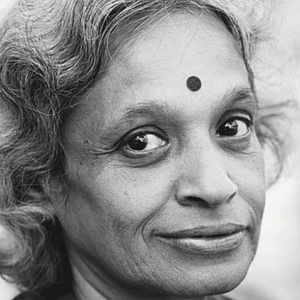I once met a woman who makes savouries and snacks for weddings. She told me that while leaving at the end of the day after making large quantities of snacks like murukku and thenkuzhal, it is important not to look back. Apparently, looking back at all that you managed to cook in one day might overwhelm you. You might be hit by a sudden exhaustion and the need to lie down as soon as you get home. But writing works differently. Here, it becomes important to constantly look back at what one has written. But no matter how often one looks back, one is never wonderstruck at one’s work. We only feel, ‘Is this all?’ One has to go past all that has been written. Then forge ahead. Targets have to be constantly set and abandoned.
Desire, loss, financial security, penury, friendship, loneliness, exhaustion, enthusiasm, disappointment, happiness, lust, detachment—stories lie at the tensions and pulls between these things. Life, too. It is in the constant struggle to know which is story, which is life, where does story end and life begin, where does life end and story begin, that writing happens. It is definitely a happening. A happening that catches one by surprise. A happening one can’t hold on to. As long as one is ready for surprises, it keeps coming like the touch of a feather, the force of a wave, the caressing of a breeze, a knife cut, a life-sucker.
Nirmal Verma says in one of his novels that for a writer to desire spiritual security is as fatal as an aspiration to material pleasure. For a writer, every place of refuge is a pitfall; you fall once, and the clear sky of creativity is lost forever. When A.K. Ramanujan was asked by a friend how he knew when a poem was complete, he is said to have replied, ‘A poem is never completed. At some point, I leave it.’ Even though his remark is about poems, I think it applies to stories too; I feel that stories too never find completion. The moment a writer finds that refuge called satisfaction, the sight of the sky that is the story, is lost.
Whenever one feels contented with what one has written and gets past the push and pull of life, stories cease to happen. If I were to put myself in the place of that woman who cooks for weddings, I must say that my murukkus come misshapen; some have even crumbled; some have stayed in the oil for a little too long and have reddened; some are not fully cooked; some broken because the batter hadn’t held together well. It is this dissatisfaction that keeps me returning to the act of writing. This dissatisfaction and the fact that a door in my mind is always open to that amazing happening called a story.
Therefore, my stories are not done. There will be another collection that comes out soon holding onto the tail of this one. Then another one holding to the tail of that one.
This extract from the introduction to A Night With a Black Spider has been re-published with permission from the publisher.





